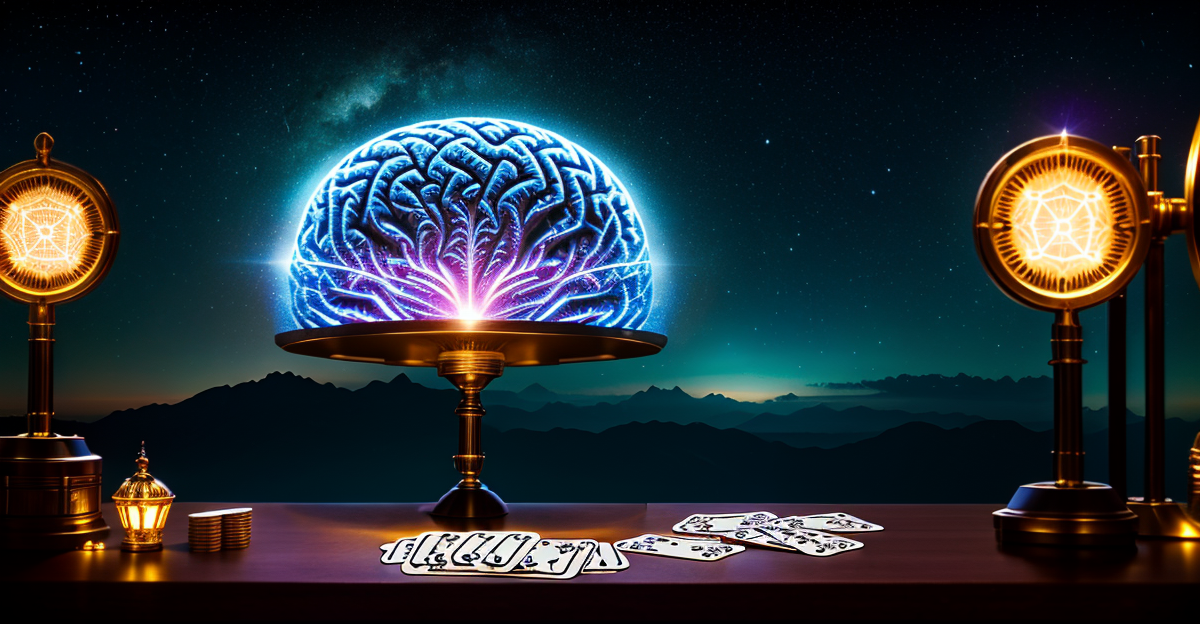
Alright, fellow cosmic adventurers! Quill here, ready to detonate some knowledge bombs that might just shatter your perception of reality. Today’s target? Boltzmann Brains. Sounds like a supervillain, doesn’t it? But trust me, the *potential* reality behind them is far more unsettling. **The Birth of Boltzmann Brains: Random Fluctuations in a Dying Universe** So, what *exactly* is a Boltzmann Brain? Picture the universe in the distant, *distant* future. Imagine heat death: a state of absolute zero, maximum entropy – a vast, cold, and utterly uniform cosmic desert. This brings us to the Second Law of Thermodynamics: the universe’s relentless march towards disorder. Entropy is like that messy room you keep meaning to clean; the universe just finds it easier to let things fall apart. But here’s the twist: even in perfect chaos, random fluctuations can still occur. Think of shuffling a deck of cards *endlessly*. Eventually, you’re statistically likely to get a perfectly ordered sequence, right? The same principle applies to particles scattered across the void. An incredibly rare, but statistically possible, event could spontaneously arrange those particles into a complex structure… like a brain. A fully formed, conscious brain, complete with memories and a sense of self, blinking into existence for a fleeting moment before dissolving back into the cosmic soup. Creepy, isn’t it? **The Problem They Pose: Undermining the Foundations of Cosmology** Now, here’s where things get *seriously* weird. The Boltzmann Brain Paradox. If the universe is heading towards heat death, and Boltzmann Brains can spontaneously pop into existence, then, theoretically, these brains should be *far* more common than brains like ours that evolved through billions of years of painstaking biological processes. Think about it this way: it’s easier to randomly assemble a brain in a mostly empty universe than it is to build an entire universe capable of supporting life, evolution, and that questionable reality TV show you secretly enjoy. If that’s the case, then the fact that *we’re* here, observing the universe with conventionally evolved brains, becomes statistically improbable. It’s like winning the lottery every single second of your life. This challenges our entire understanding of the cosmos! Does it mean our Big Bang theory is fundamentally flawed? Is the standard cosmological model completely wrong? It’s like discovering your favorite novel was actually ghostwritten by a particularly articulate goldfish. **Potential Solutions and Counterarguments: Taming the Boltzmann Beast** Hold on tight! Scientists have proposed several solutions to wrestle this Boltzmann beast to the ground. One approach involves fine-tuning cosmological parameters – adjusting our models of the universe to suppress the formation of Boltzmann Brains. For example, some theories suggest that the universe’s expansion might eventually halt, preventing the heat death scenario where these brains thrive. Another popular idea involves the multiverse. Maybe *our* universe, where brains evolved the “normal” way, is just one statistically “average” universe within a vast, possibly infinite, collection of universes. It’s like saying, “Okay, there might be a few universes teeming with spontaneously generated brains, but *ours* is special!” **The Nature of Consciousness: Is it Computationally Universal?** This entire thought experiment also forces us to grapple with the very nature of consciousness. If consciousness is simply a form of computation – a complex pattern of information processing – then theoretically, it could arise in any substrate, including a random arrangement of particles. But then we stumble upon the problem of qualia – the subjective, felt experience of consciousness. Can a Boltzmann Brain truly *experience* joy, sorrow, or the taste of pizza? Does it have genuine thoughts, or is it merely running a sophisticated simulation? Does it feel the existential dread of its own fleeting existence? These are the questions that keep philosophers tossing and turning at night (and probably those articulate goldfish, too). **Beyond Science Fiction: The Philosophical Implications of Boltzmann Brains** The implications of Boltzmann Brains ripple far beyond astrophysics and theoretical physics. If our minds are unreliable – if we could be nothing more than temporary figments of a dying universe – what can we truly know? What is reality, anyway? The possibility of being a Boltzmann Brain also throws a wrench into our understanding of life’s meaning and purpose. If our existence is just a random blip, does anything we do matter? Are our achievements meaningless in the face of cosmic entropy? Existential crisis incoming? So, here’s the million-dollar question: **If you discovered definitive proof that you were, in fact, a Boltzmann Brain, would you want to know?** Boltzmann Brains, born from statistical anomalies in a decaying universe, present a profound challenge to cosmology and our understanding of consciousness, sparking debate and prompting revisions of our cosmological models. What do YOU think? Share your thoughts in the comments below! And be sure to follow for more wild facts and weird science!



